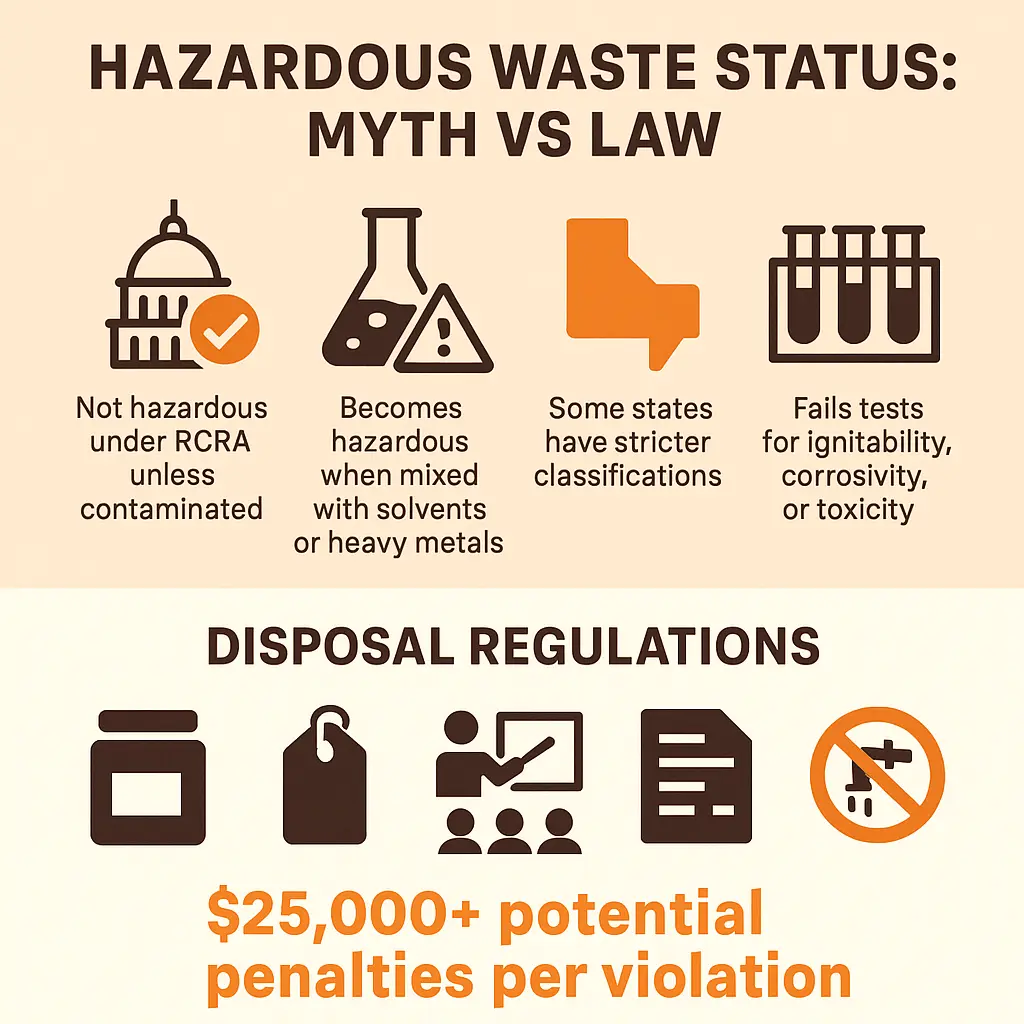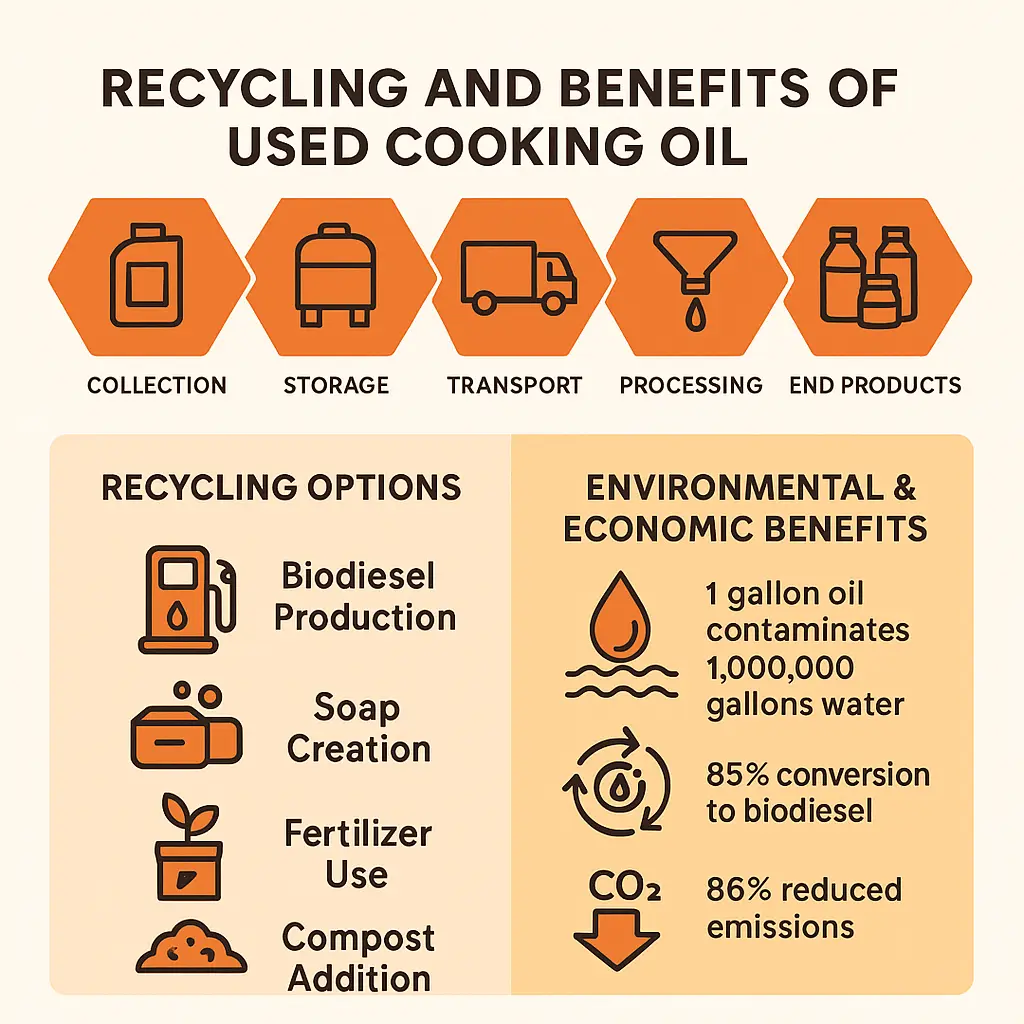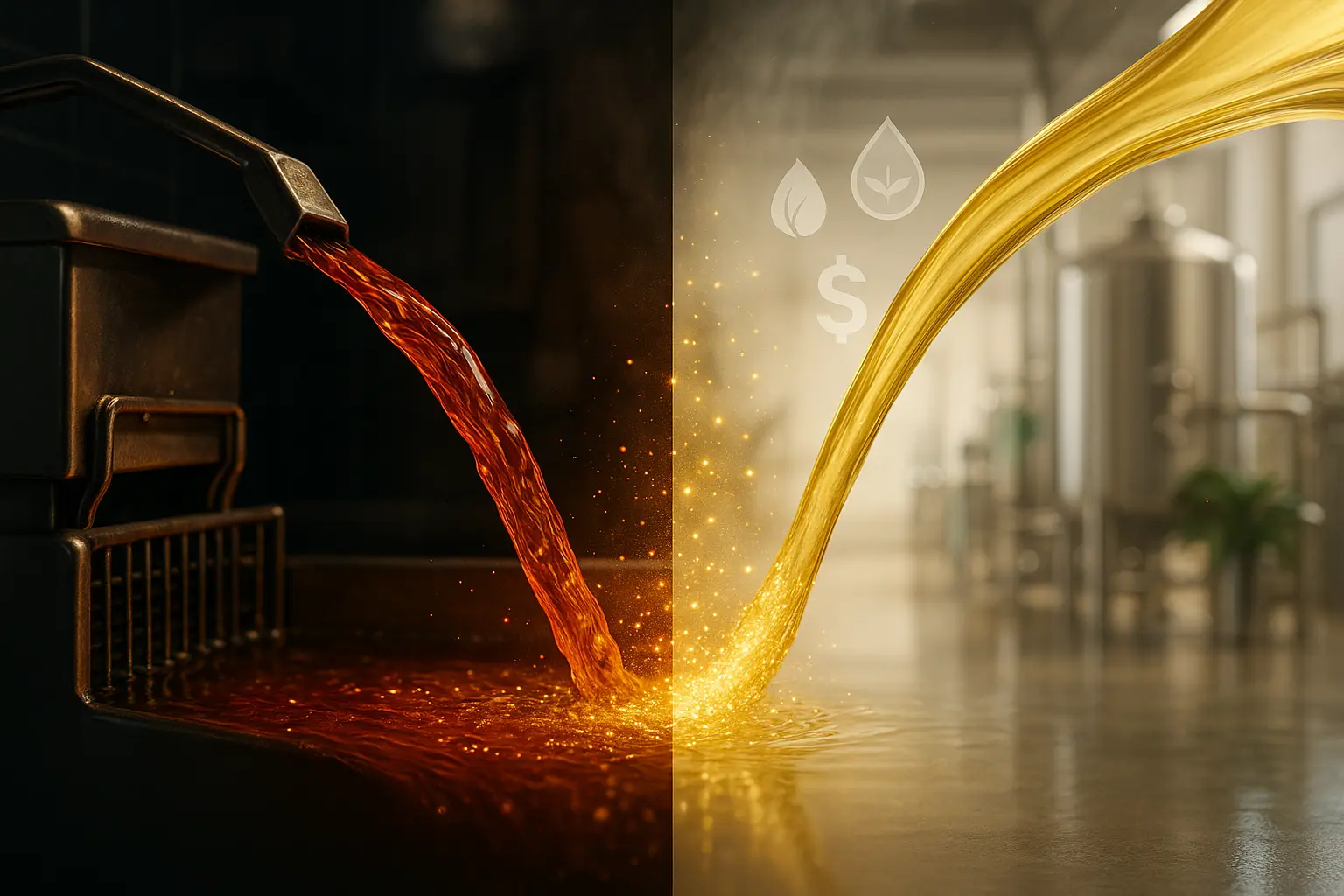Table of Content
Introduction
Every kitchen from suburban homes to stadium concessions creates a steady stream of used cooking oil. Handled well, that amber liquid becomes a renewable fuel and keeps pipes clear. Handled poorly, it clogs sewers, poisons waterways, and triggers five‑figure penalties. This guide separates law from myth so operators can protect public health, avoid hazardous‑waste missteps, and turn waste oil into a resource.
Hazardous‑Waste Status: Myth versus Law

Federal baseline. Under the Resource Conservation & Recovery Act (RCRA) a material becomes hazardous waste only if it fails tests for ignitability, corrosivity, reactivity, or toxicity. Filtered fryer oil almost never fails.
Contamination flips the switch. Mix that oil with solvent rinse, corrosive cleaning fluid, or heavy‑metal sludge and it immediately carries a hazardous waste code. Blends must travel under a manifest to a licensed treatment site.
Automatic state upgrades. California, Florida, and a few other states pre‑classify certain high‑contaminant used‑oil streams as hazardous even when federal thresholds aren’t exceeded—adding extra paperwork and fees for generators.
Disposal Regulations: What the Law Expects
Legal baseline. Food‑service businesses must collect grease in intact containers, label it “Used Cooking Oil,” train staff, and document pump‑outs. Penalties regularly exceed $25,000 per violation1.
State‑by‑state rules. Georgia limits outside tanks to 1,000 gallons unless they sit on a concrete pad; New Jersey requires secondary containment within 500 feet of wetlands; Florida demands a manifest for loads above 55 gallons crossing county lines. Always verify local ordinances before installing equipment or signing hauling contracts.
Absolute prohibitions. No state allows restaurants to dump used oil in sinks, storm drains, gardens, or anywhere wildlife might contact the residue. Inspectors track the tell‑tale sheen and issue on‑the‑spot fines.
Commercial partnerships. Because rules are strict, most restaurants contract specialised waste‑management companies that install sealed outdoor tanks, schedule pickups, and issue recycling certificates. These firms also handle grease‑trap pump‑outs so fats that settle indoors never reach public pipes.
Small‑volume transport. In most states, generators may carry up to 55 gallons to a collection centre without an EPA ID. Larger loads—or interstate moves—require a licensed transporter who files shipping documents.
Recycling & Reuse: Turning Waste into Resource

From fryer to fuel. Processing plants filter crumbs, dehydrate water, and use trans‑esterification to convert oil into biodiesel, cutting lifecycle greenhouse‑gas emissions by up to 86 percent.
Beyond biodiesel. Blend the glycerol‑rich by‑product with fertiliser for slow‑release nutrients, saponify it into restaurant‑branded soap, or drizzle small filtered amounts onto compost piles to feed microbes.
Storage tips. Hold used oil in clean, airtight steel or HDPE containers in a cool, dark storeroom. Heat and sunlight accelerate oxidation and invite pests. Keep virgin‑fuel tanks in a separate zone to avoid mix‑ups. Label clearly.
Extend fryer life. Daily filtration removes crumbs, extending oil life for several cycles and reducing waste volume.
Closed‑loop program. A full chain covers on‑site collection, secure storage, licensed transport, treatment, and processing into biodiesel, soap, or lubricants. Reputable recyclers provide monthly sustainability reports.
Environmental & Economic Pay‑off
One gallon of dumped oil can contaminate a million gallons of freshwater. The same gallon, recycled, yields roughly 0.85 gallon of biodiesel, keeps sewers flowing, avoids landfill methane, and sends a rebate cheque to the restaurant.
Explore Grease Connections
Used Cooking Oil Collection Services
Need a compliant pickup? Grease Connections installs sealed tanks, files the paperwork, and pays quarterly rebates.









